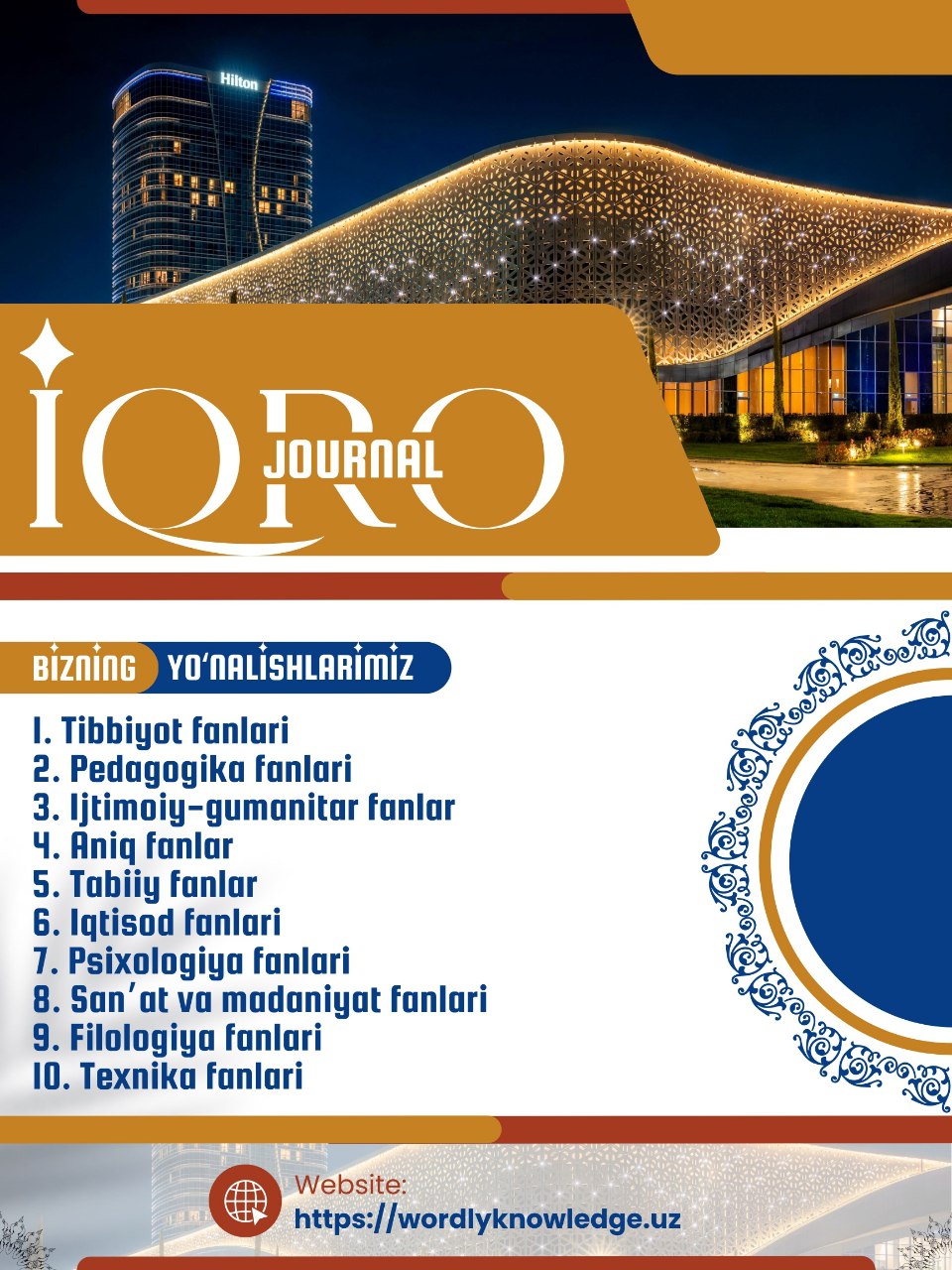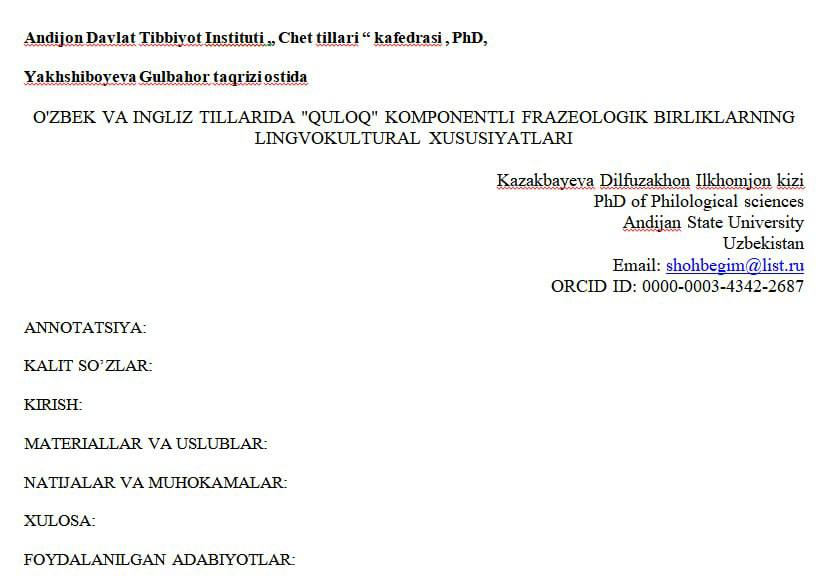ANALYSIS OF CONDITIONAL SENTENCE STRUCTURES IN LINGUISTICS
Toshkent xalqaro moliyaviy boshqaruv va texnalogiyalar universiteti, “ Xorijiy filologiya” kafedrasi, Professor v.v.b., PhD Tuxtaxodjayeva Nargiza Akmalovna taqrizi ostida
Keywords:
stylistic figure, chiasmus, French language, Uzbek language, comparative analysis, linguistics, rhetorical devices, literary language, stylistics, analysis.Abstract
This paper examines the non-marked case of conditional sentences, focusing on the structure "if A, B" and its various interpretations. Unlike explicitly marked conditionals, the non-marked case requires contextual inference to determine the type of logical connection between antecedent and consequent. Through transformation and syntactic modifications, we analyze necessary, sufficient, and insufficient conditionals, highlighting their distinctive features. Additionally, we explore how Uzbek linguistic structures express conditional and subjunctive moods, emphasizing the role of affixes such as -sa and modal constructions like "qani endi" and "koshki." The study illustrates how different languages manage conditionals and subjunctive expressions, underscoring both syntactic and semantic challenges in formalizing these structures.
References
1. Азизова А. Ўзбек тилида шарт ва тўсиқсиз эргаш гаплар. Ҳозирги замон ўзбек тили курсидан материаллар. - Ўзфанакадемнашр. 1955
2. Gulomov A. (1964) Verb. - Tashkent: Publishing House of the Academy of Sciences of the Republic of Uzbekistan; Hojiev A. (1973) Verb. - Tashkent: Fan. p 92; Rahmatullaev Sh. (2006) Modern Uzbek literary language. Toshkent. p. 188.
3 .Gulomov A., Askarova M. (1987) Modern Uzbek literature. Tashkent: Teacher.
4. S.Ahmad. “Napoleon Mamajonov” hajviya. Ziyonet.uz kutubxonasi.
5. To’xtaboyev X. Sariq devni minib. – Toshkent. Yangi asr avlodi nashriyoti. 2013.
6. Bobokalonov R. (2000) Functionally-semantically formed words in Uzbek language. Tashkent.
7. Veltman, “Data Semantics and the Pragmatics of Indicative Conditionals”
8. Iatridou, “If ‘then’. Then what?”
9. Iatridou, “If ‘then’. Then what?”














